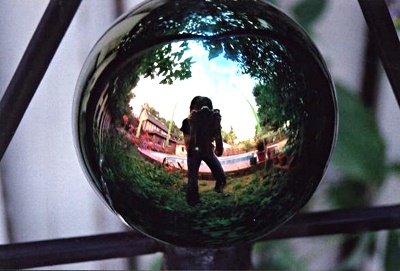All Nonfiction
- Bullying
- Books
- Academic
- Author Interviews
- Celebrity interviews
- College Articles
- College Essays
- Educator of the Year
- Heroes
- Interviews
- Memoir
- Personal Experience
- Sports
- Travel & Culture
All Opinions
- Bullying
- Current Events / Politics
- Discrimination
- Drugs / Alcohol / Smoking
- Entertainment / Celebrities
- Environment
- Love / Relationships
- Movies / Music / TV
- Pop Culture / Trends
- School / College
- Social Issues / Civics
- Spirituality / Religion
- Sports / Hobbies
All Hot Topics
- Bullying
- Community Service
- Environment
- Health
- Letters to the Editor
- Pride & Prejudice
- What Matters
- Back
Summer Guide
- Program Links
- Program Reviews
- Back
College Guide
- College Links
- College Reviews
- College Essays
- College Articles
- Back
Life as a Screenplay
The soft velvet seat of the theater surrounds me as I start to relax; the floor is sticky with the residue of spilled soda and candy, and a hint of butter still lingers in the air. The curtains go down and the lights dim; a scene flickers onto the blank screen, an establishing shot of a house. The camera pans right and focuses on the only window in the house with light spilling out. A girl sits at her desk, her face hidden from the prying eye of the lens. The camera follows as she gets up and makes her way to the kitchen, switches to a high-angle shot as she makes her own dinner. The camera cuts away from the girl and focuses on her surroundings—she is alone. The silence is too much for her, so she slips into bed and pulls the covers up around her to drown it out. Only in slumber does she reveal her face to the camera. As the curtains go up and the lights return, I remember that I am the girl on the screen; I am just another character in a story, and my life up until now has always been lived through a lens.
Since I was young, I have fancifully considered that I may be the star of an elaborate “Truman Show”- style program. Though I, of course, recognize the utter improbability of my fantasy, it has still shaped the way I see the world. A brilliantly-hued sunset becomes an impressive CGI shot, my closet morphs into a costuming department able to accommodate any era, and that new girl in Biology clearly came from the Casting department. Through it all, the cameras roll—my eyes, capturing the reels of my life and framing the defining moments of my existence in memories, like limited edition film cells.
The lights dim once more, for my daydream-intermission has come to an end, and the projector sputters back to life, returning me to the heroine’s storyline. The scene comes into focus: a long shot of my sitting in the middle of a restaurant, dishes clattering in the background amid a cacophonous atmosphere. My mind stumbles back in time, and instead of watching the scene, I am now reliving it. My throat closes up and tears threaten to spill out of my eyes as I look down at my untouched plate. When I look up, I see my mother’s mouth moving, but I don’t hear the words clearly—it’s as if everything is being muffled by a wall. She’s talking about my father: I think I hear the word divorce, and though I can’t be sure I’ve heard correctly, I know it’s true. I’m not shocked; the truth is I had come to terms with the inevitable long before that day. It is this scene, more than any other, that shows me the power—and limitations—of my mental camera. Strange details that I hadn’t planned to record—my brother’s stony face, the water-spot on my fork that I can’t seem to remove—are indelibly captured on film, while crucial segments, even my own lines from the script, have somehow landed on the cutting room floor. The film reel catches and jerks to a stop, forever paused in that moment of time. Unable to replay that scene further, I revisit the episodes of their divorce, sometimes fast-forwarding, sometimes moving frame by frame, aware yet again of the power of the camera; how the scene is framed, how the contents of the foreground or background can dramatically alter the effect on the audience. When my mother's claims about my father, blown out of proportion, loom too large near the foreground, my heart pangs with guilt as I remember the bitter script I recited at him. With proper framing and proportion, though, I am able to find the necessary balance, the contentment of understanding that I can control where my camera focuses.
Every day, I revisit the theatre’s dark corridors. This theater is not open to the public—it is here to remind me that I must choose to be my own director, to take an active hand in the casting, scripting, and composition of what will be the greatest blockbuster of my lifetime. It is a limited run, so I better make it worthwhile. Even though I don't always know the script, I do know that, from now on, I’ll be the one controlling the camera.

Similar Articles
JOIN THE DISCUSSION
This article has 1 comment.
